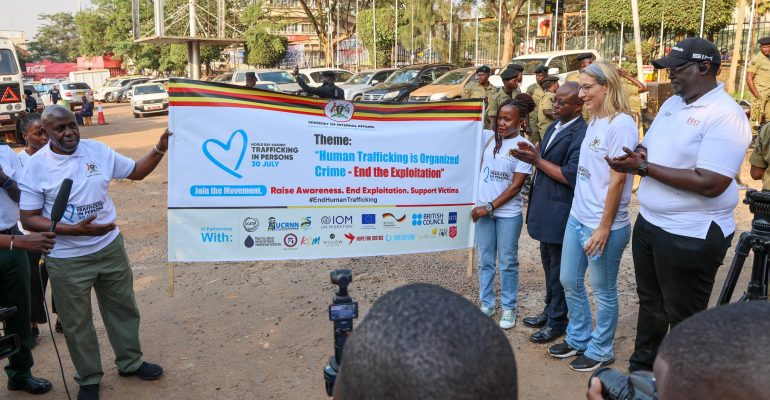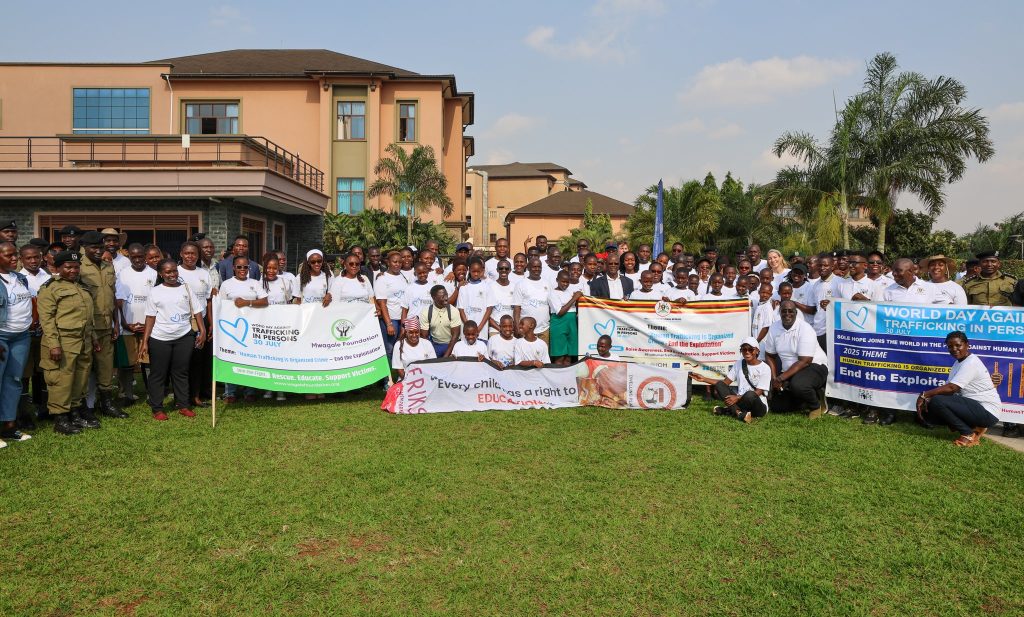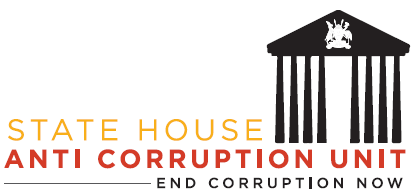
Date: July 30, 2025
KAMPALA – In a powerful display of commitment to a multi-pronged fight against crime and corruption, the Head of the State House Anti-Corruption Unit (SH-ACU), Brig Gen Henry Isoke, flagged off a symbolic walk to commemorate the World Day Against Trafficking in Persons.
The event, organised by the Uganda Child Rights NGO Network (UCRNN) under the Ministry of Internal Affairs, served as a platform for stakeholders to advocate for safe labour migration and to address the pressing challenges facing the sector. It also called for a moment of national reflection on Uganda’s efforts in tackling the rising cases of Trafficking in Persons (TIP), particularly among vulnerable groups such as women, children, refugees, and persons with disabilities.

In his address, Brig. Gen. Isoke delivered a strong message that connected the anti-corruption fight directly to the battle against human trafficking. He highlighted that while Uganda has made commendable strides with the Prevention of Trafficking in Persons Act, 2009, true progress lies in its effective implementation, which is often greatly hindered by corruption. He underscored that corruption erodes the systems designed to protect citizens, creating loopholes that human traffickers exploit with impunity.
Human Trafficking, a grave violation of human rights, involves the recruitment, transportation, or hiring of persons for the purpose of exploitation, primarily sexual exploitation and forced labour.
The General emphasized that Uganda’s national action plan for the protection of TIP victims aligns with the strategies of the International Organization of Migration (IOM), which are founded on the 4Ps: Prevention of trafficking, Protection of victims, Prosecution of offenders, and working in Partnership with others. He asserted that the SH-ACU’s collaboration with agencies like the Ministry of Internal Affairs, the Uganda Police Force (UPF), and the Directorate of Public Prosecutions (ODPP) is a testament to the government’s commitment to this coordinated approach.

Furthermore, Brig. Gen. Isoke noted the government’s proactive commitment to empowering vulnerable populations through socio-economic programs like the Parish Development Model (PDM), Emyooga, and the Youth Livelihood Program. He explained that these initiatives are designed to improve household incomes and reduce the economic desperation that traffickers often prey on.
He concluded his remarks by urging all participants and Ugandans at large to remain vigilant, report suspicious activity, and continue building a society where human life and rights are fully protected from all forms of exploitation and corruption.
